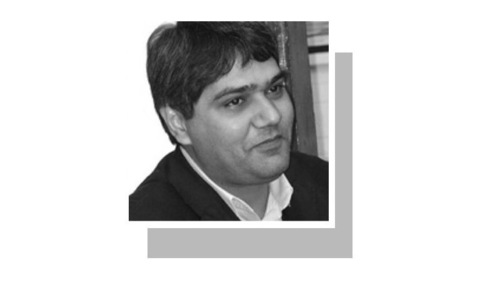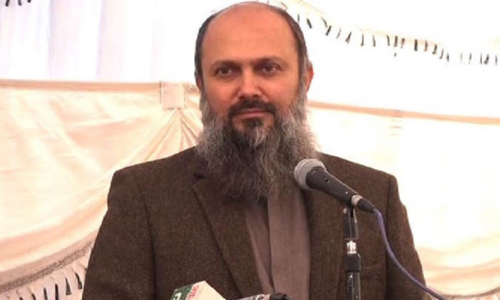Fencing of Gwadar

MEDIA reports about the federal government’s plan to fence the port town of Gwadar for security reasons have sparked a controversy. Baloch political parties have termed it a conspiracy and vowed to resist it at all forums. This discontent is part of a wider societal scepticism towards Islamabad-led mega economic development projects in Balochistan, especially the multibillion-dollar CPEC. In response, the civilian and military elites maintain that CPEC will promote economic development and address major gaps in physical and energy infrastructure.
There is no denying that economic development interventions, such as CPEC, have the potential to reduce conflict in affected zones. However, poorly designed and ill-planned economic interventions may prove counterproductive. This warrants a dispassionate review of the state’s approach towards economic development in Balochistan.
Successful economic development and reconstruction efforts in conflict zones are typically preceded by the cessation of hostilities and political reconciliation. Sustainable economic development can’t effectively proceed without first achieving a minimum level of peace. Economic development amidst conflict is fraught with several risks.
An inclusionary approach is needed in Balochistan.
First, it leads to a situation where the military assumes a greater role not only in security matters but also economic development interventions. This, on the one hand, increases militarisation in the region, which is bound to create anger in a place like Balochistan with its long history of local resentment towards security check posts and cantonments. The Baloch fear that increased militarisation will intensify repression and further restrict people’s movement. On the other hand, military-driven economic interventions create issues of legitimacy and local ownership. Political elements in Balochistan across the spectrum have expressed serious reservations about CPEC and the associated militarisation. The local population in Gwadar, especially fishermen, believe they are being displaced and dispossessed in their own land. The fencing of Gwadar will validate their worst fears.
Further, the non-inclusive, extractive model of development pushed by the ruling elites in Islamabad has not only created resentment but also contributed to the delegitimisation of parliamentary politics and alienation of pro-federation Baloch political voices. Baloch nationalist parties, which advocate non-violent parliamentary means for the resolution of their grievances, have traditionally been criticised by Baloch insurgents for giving legitimacy to what they dub as an ‘ineffective’ parliamentary system. The intensification of the militarised, exploitative approach to economic development has strengthened the former narrative and undermined non-violent, pro-federation political voices in the province.
Lastly, a militarised approach to economic development inadvertently puts off prospective investors and foreign governments for whom the enhanced security measures are intended. Attracting private or foreign investment in such an environment is bound to be difficult. The civilian and military elites need to realise that mega development initiatives like CPEC can’t succeed without local buy-in and ownership. Repression and development can’t go hand in hand. Local support can be ensured by adopting an approach to economic development that is conflict-sensitive and prioritises the objective of peace-building over narrowly defined economic goals. This, among others, warrants the need for political reconciliation with Baloch insurgents and the adoption of a more inclusive, participatory approach to development.
The current political settlement in Balochistan is fragile and exclusionary in nature. Under these circumstances, it is imperative to first reform the current settlement and then promote economic development programmes that are aimed at reducing conflict. But instead of opting for political reconciliation, the state seems keen on using coercive tactics to deal with the situation.
The security establishment needs to realise and appreciate that a hard approach alone can ensure only partial and temporary peace at best and that a low-level insurgency could continue almost indefinitely no matter what security measures are taken. Complete suppression and defeat of the Baloch insurgency is nearly impossible. And low-level violence is enough to put the state on the defensive, draw international attention and unsettle foreign investors.
In the light of the above, it can be fairly concluded that the fencing of Gwadar is likely to intensify feelings of deprivation and marginalisation in Balochistan. The people of Balochistan regard their coastal belt and Gwadar as an asset that may bring them prosperity. Only an inclusive and conflict-sensitive approach to development may promote ownership and generate wider socioeconomic benefits for the local populace.
The writer is a public policy and development specialist from Balochistan.
Twitter: @rafiullahkakar
Published in Dawn, December 26th, 2020













































